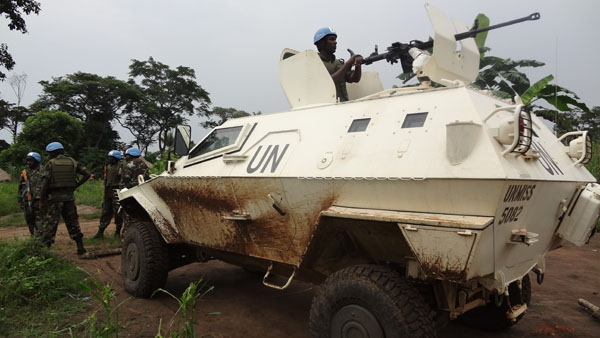
“Just last week I received a young boy who escaped [from the Lord’s Resistance Army] in Congo. He told me that he feared what would happen once he returned to his village [in northern Uganda], now that there was no amnesty and no one to reintroduce him into the community. The only thing I could do was to give him my business card and tell him to call me in case of any problems. What kind of protection is that?”
A civil servant with Uganda’s Amnesty Commission recounted this experience to Enough Project LRA researcher Kasper Agger during a recent investigation into the implications of the Ugandan government’s decision to dismantle a law protecting all but the highest-ranking LRA rebels from prosecution if they leave the group. The findings of that research are published today in a new Enough report, “The End of Amnesty in Uganda: Implications for LRA Defections.”
The promise of amnesty and reintegration has played a vital role in motivating fighters to escape or defect from the Lord’s Resistance Army, Agger found. In interviews with more than 60 people across northern Uganda and consultations with civil society groups in the Democratic Republic of Congo, the Central African Republic, and South Sudan, people expressed support for amnesty for LRA fighters—drawing a distinction with those fighters who willingly joined LRA leader Joseph Kony—and concern that number of defections and returnees would likely drop as a result of the removal of amnesty.
Agger captured many of these sentiments in a video also released today:
“While there is overwhelming support for amnesty among local communities in northern Uganda, there is also a recognized need for reconciliation and transitional justice,” said Agger in a press release announcing the new report, adding that there is often no clear distinction between victim and perpetrator when dealing with former LRA fighters because the vast majority were abducted and forced to fight. “To ensure long-term peace and stability, Kampala must formalize truth-seeking and traditional reconciliation practices for former combatants to receive amnesty in exchange for their participation,” Agger said.
The report outlines a three-part plan to encourage LRA defections while also pursuing justice and truth for reconciliation in northern Uganda:
- The highest level of the Ugandan government, preferably President Yoweri Museveni, must ensure and publicly clarify that former rebels will not be prosecuted and that they can return safely.
- The government should put in place formalized truth-seeking and traditional reconciliation practices, with former combatants receiving amnesty in exchange for their participation. A multi-stakeholder commission with representatives from the government, civil society, legal experts, and traditional and religious leaders should be established to oversee the process.
- The transitional justice policy for Uganda that is currently being developed should be holistic and include mechanisms to deal with crimes committed by all parties to conflicts in Uganda, including the Ugandan army and the government.
“The government of Uganda should listen to the concerns of its citizens and ensure that no former LRA combatants, aside from those wanted by the ICC, are prosecuted,” said Enough Executive Director John Bradshaw.
Read the full report, “The End of Amnesty in Uganda: Implications for LRA Defections.”
Photo: U.N. peacekeepers patrol in areas affected by the LRA in the Central African Republic (Enough / Kasper Agger)

